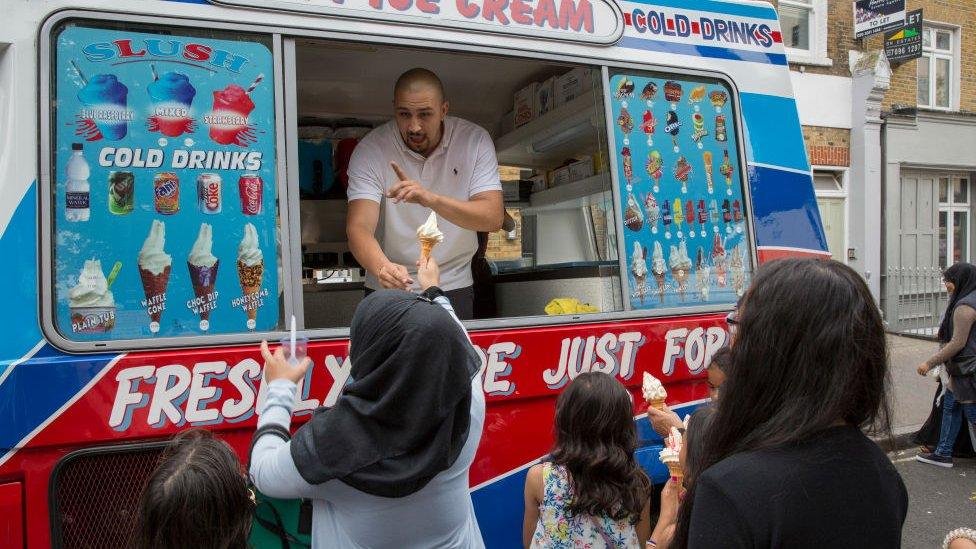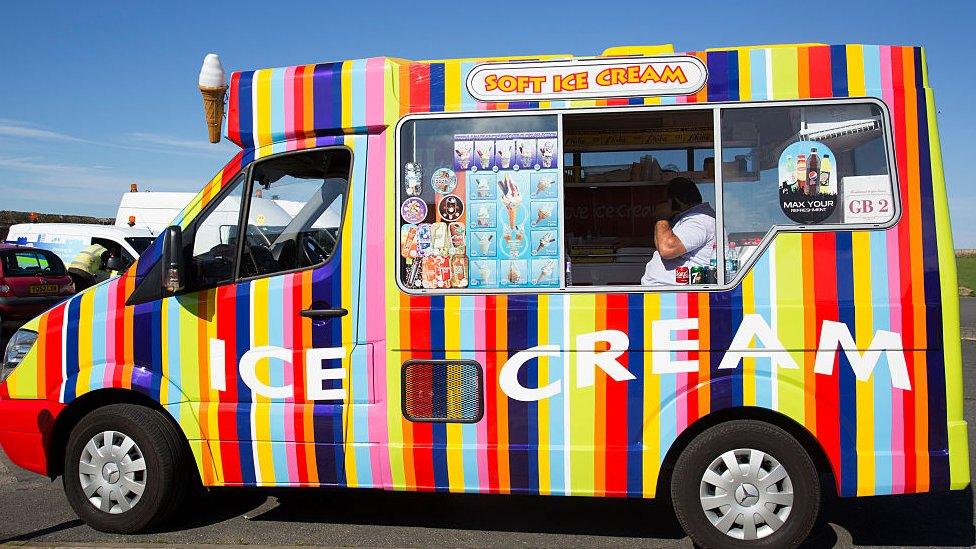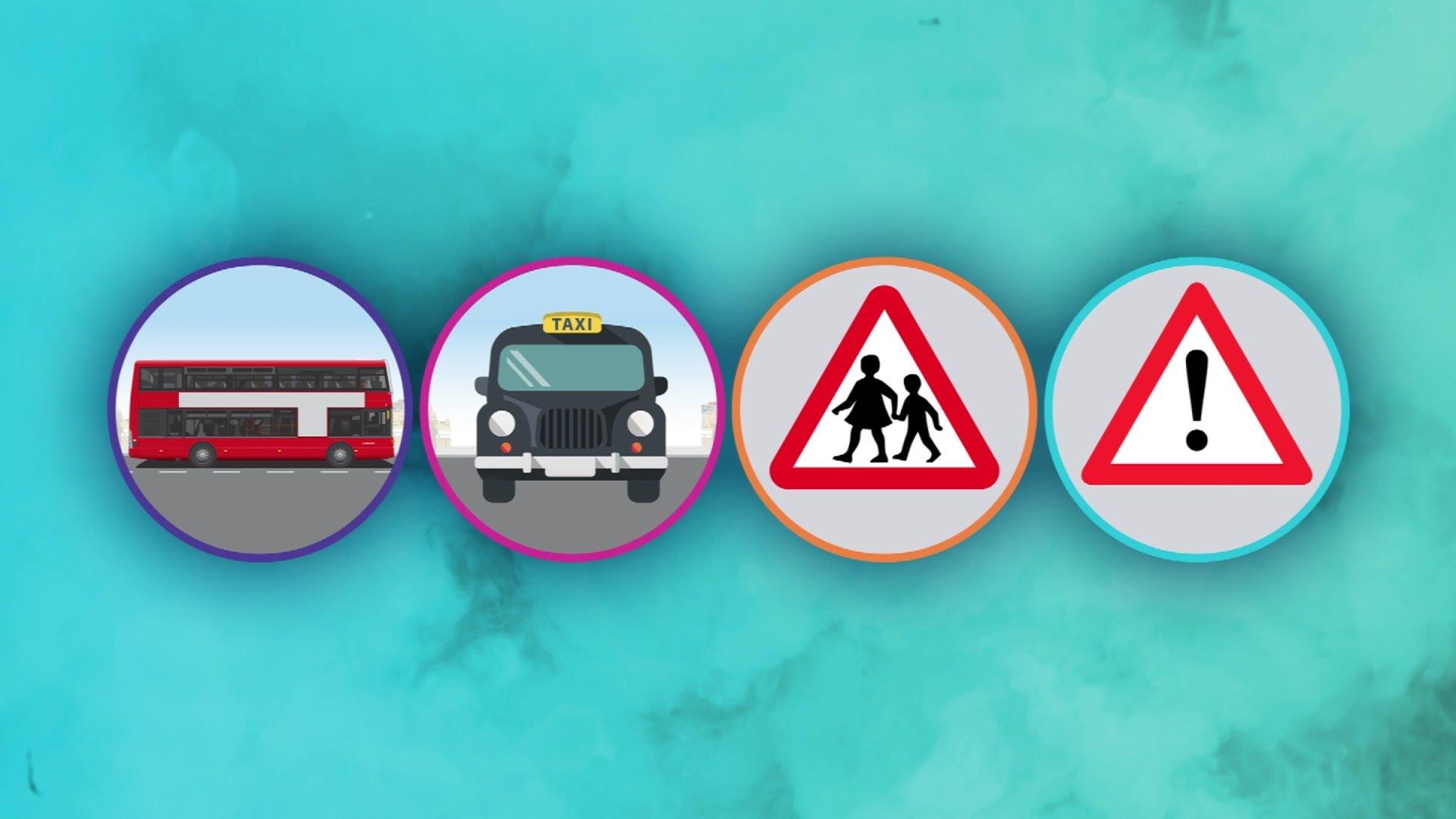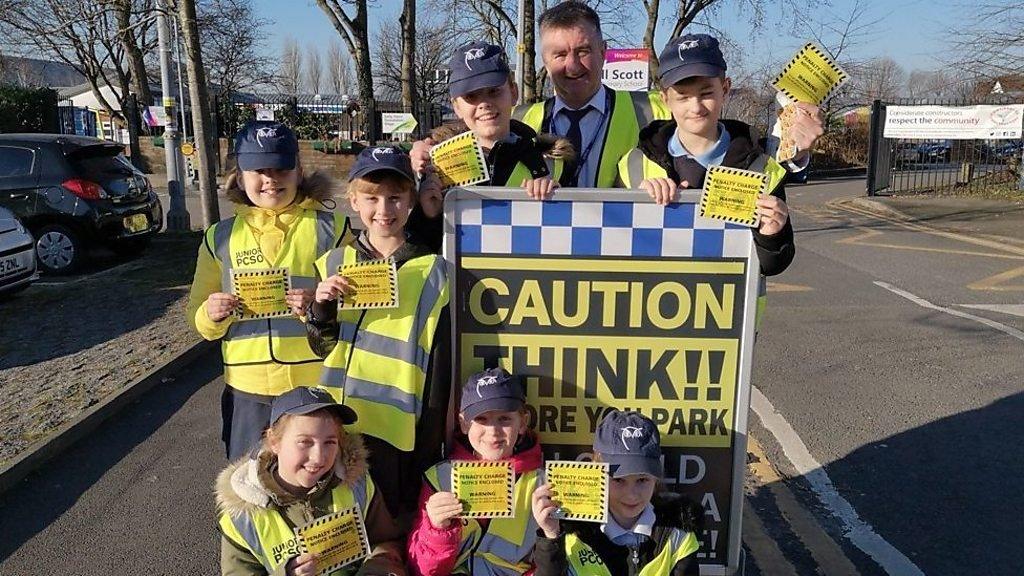Ice cream vans: Could air pollution make them a thing of the past?
- Published
- comments

The sound of the ice cream van signals summer in lots of places around the UK.
But could the vans soon be disappearing from our streets?
Ice cream vans have already been banned from some parts of London because local councils say the engines are big contributors to air pollution in the city.
And that's not the only reason ice cream vans' days could be numbered.

So what's the problem?
Most ice cream vans are diesel engines, which release harmful chemicals like black carbon and nitrogen dioxide.
The vans need to keep their engines running even when they are parked up because that's their only source of power.
Without power from the engines, ice cream vans can't keep their freezers cool, or power their whippy or slush machines.
The UK has a target of cutting carbon dioxide (CO2) emissions by 80% by 2050.
To help meet the target, the government has set up an ultra low emission zone. That means any van operating in central London can be charged up to £100 a day.
With all the new rules and costs, ice cream vans are finding it harder to operate.

What's the solution?
To get rid of harmful emissions from vans, a number of companies are working on designs for all-electric vehicles.
Councils are looking at installing electricity power points on streets, which would mean sellers could power their freezers and machines without their engines running.
But what do you think? Would you be sad to see your ice cream van go? Let us know in the comments below.
- Published8 January 2018

- Published15 March 2019

- Published14 January 2019

